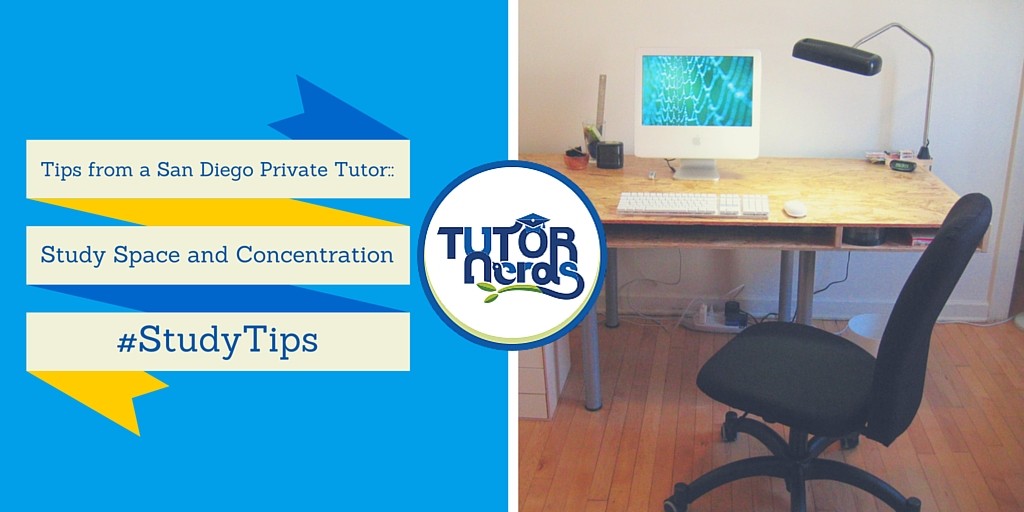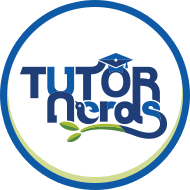5 Ways your Study Space can affect your Concentration


Concentration can be hard to come by with finals week not too far away. Things like stress and anxiety can easily take away from the ability to sit down and truly focus on a particular assignment or project. If students are going to be studying, either alone or with a tutor, for an extended period it’s important that they pay attention to their study space and know that it can affect their concentration negatively or positively.
It’s important that students have enough peace and quiet so they can give their undivided attention to the task at hand. Students who are struggling to find a quiet place can consider reserving a private room at the library, working behind closed doors, or asking one of their teachers if they can stay late and work in an empty classroom. Students who simply can’t find a peaceful area can use ear plugs or even play serene music while working on their homework (READ: “Sleep, a Healthy Lifestyle, and Academic Success”).
Most study groups prefer to meet at a coffee shop or cafe so that their study session can be a little bit more lively and fun. Unfortunately, many groups veer away from their tasks and end up enjoying the social atmosphere more than their studies. Students who need to get a group project done, and done quickly, should also consider finding a private room in a library or another place that allows collaboration but not excessive noise. Libraries can still allow for a limited amount of socialization but highly discourage loud discussions, which can help students finish their assignments and move on to things that are more fun.
Students who are in for a long haul study session should consider whether or not they are comfortable. Back and neck pain certainly will not help with concentration. Students are encouraged to choose a comfortable chair or couch and make sure that they have the appropriate lighting to suit their eyes so that they are not distracted by physical discomfort.
Students who are enduring multiple hour study sessions will need to take a break here and there to have a snack or stretch. It’s also important that students stay hydrated so that their brain can function at maximum capacity. In addition to snack breaks it’s a good idea for students to get up and walk around once every 30 to 45 minutes and try and look away from their computer every 20 minutes or so. Walking around the house or getting some fresh air can be helpful; however, tabbing over to social media sites will just provide an unnecessary distraction (READ: “10 Study Tips from an Irvine History Tutor”).
It’s essential for students to make sure that they have all the necessary materials before they sit down to complete a project. Students who have to get up several times throughout their study session to find a particular item will find themselves more frustrated than productive. If a student needs an electrical outlet for their laptop or tablet, they should find it before they sit down. If they need highlighters, paper clips, or Post-it notes, they should gather all of those things ahead of time.
Concentration, or lack thereof, has been an issue for many generations of students. New technology comes with new distractions and students will have to find improved ways of concentrating on their particular assignments. One way students can give themselves a better chance of getting things done on time and without excessive interruption is to create a study area that is conducive to the task at hand – ask your private San Diego tutor from TutorNerds where they like to study.
100% Satisfaction Guarantee
You’ll love your tutor, or you don’t pay.

We will evaluate your situation and answer any questions. We will then individually match you with one of our tutors. Your tutor will recommend the best strategies for you based on your goals. You’ll work with the same tutor ongoing and you can schedule directly with your tutor.
100% Satisfaction Guarantee – You’ll love your tutor, or you don’t pay
| Cookie | Duration | Description |
|---|---|---|
| cookielawinfo-checkbox-analytics | 11 months | This cookie is set by GDPR Cookie Consent plugin. The cookie is used to store the user consent for the cookies in the category "Analytics". |
| cookielawinfo-checkbox-functional | 11 months | The cookie is set by GDPR cookie consent to record the user consent for the cookies in the category "Functional". |
| cookielawinfo-checkbox-necessary | 11 months | This cookie is set by GDPR Cookie Consent plugin. The cookies is used to store the user consent for the cookies in the category "Necessary". |
| cookielawinfo-checkbox-others | 11 months | This cookie is set by GDPR Cookie Consent plugin. The cookie is used to store the user consent for the cookies in the category "Other. |
| cookielawinfo-checkbox-performance | 11 months | This cookie is set by GDPR Cookie Consent plugin. The cookie is used to store the user consent for the cookies in the category "Performance". |
| viewed_cookie_policy | 11 months | The cookie is set by the GDPR Cookie Consent plugin and is used to store whether or not user has consented to the use of cookies. It does not store any personal data. |

